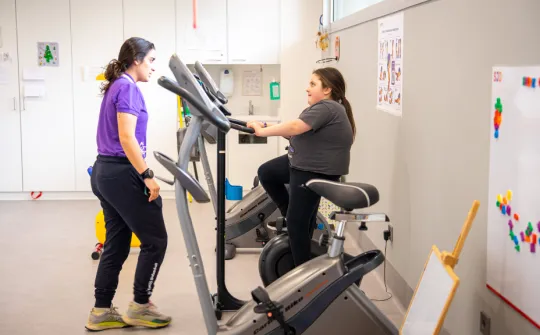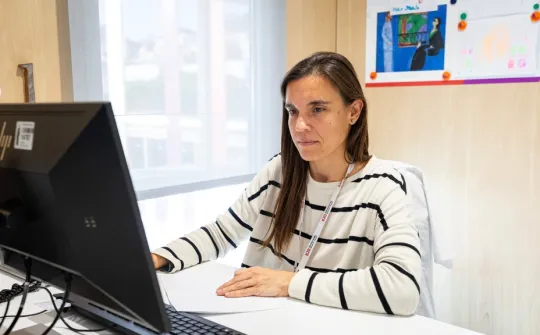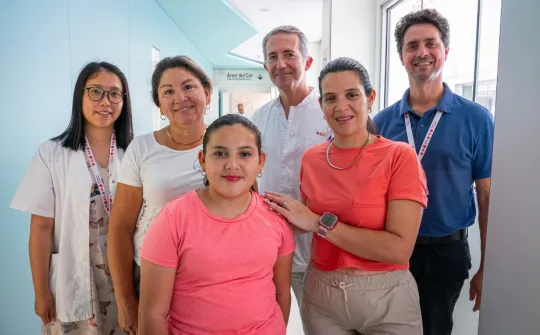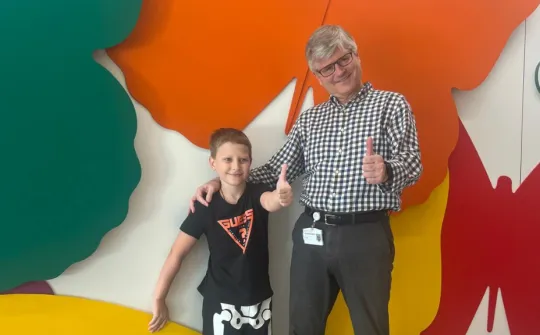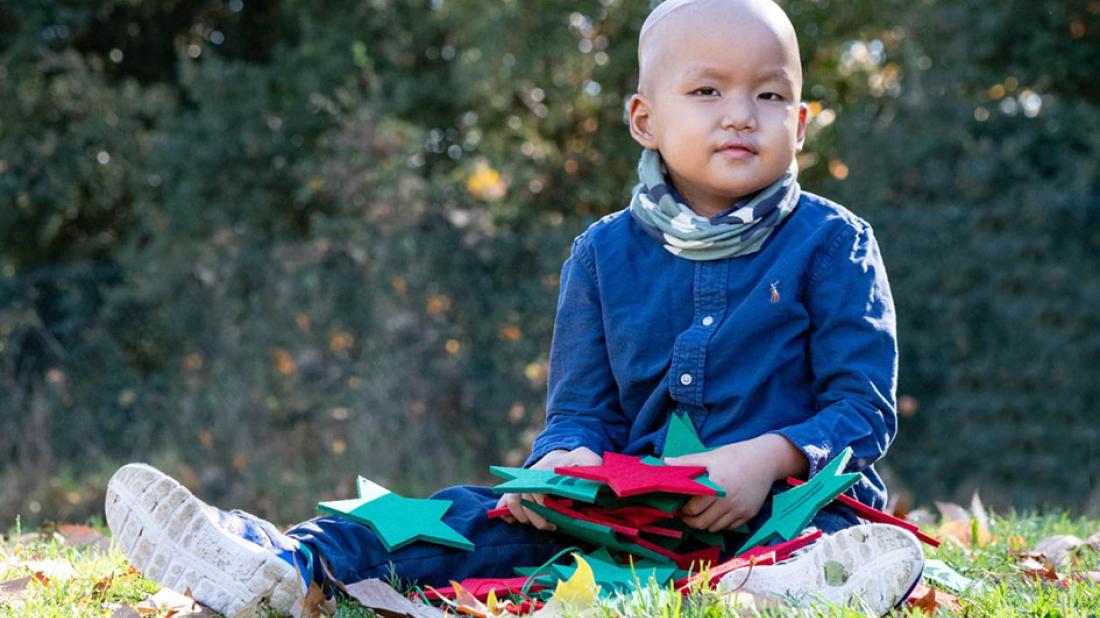
Yuchen was treated for medulloblastoma at SJD Barcelona Children's Hospital and his family has started the Els Petits Valents association to raise funds for childhood cancer research.
Yuchen was four years old when his family realised that something was wrong. The child had started to walk clumsily and the paediatricians who had visited him could not find the reason underlying a limp that was worsening into a significant gait disturbance.
Finally they went to SJD Barcelona Children's Hospital, where they identified, first with a CAT scan and later with an MRI, that the cause was a medulloblastoma, the most common malignant brain tumour in the paediatric age group, which currently represents 20% of childhood tumours.
After the shock of the news, the family put all their trust in the team at Sant Joan de Déu. "At no time did we consider asking for a second opinion, as we were sure that we were in the best possible place", explains Yuchen's mother.
Adapting treatment for Yuchen's case
After confirmation of the diagnosis, Yuchen underwent emergency surgery at SJD Barcelona Children's Hospital. Following the classic protocols, a medulloblastoma in a child over 4 years old, as was the case with Yuchen, is treated with radiotherapy combined with chemotherapy to achieve, in cases where it is possible, a complete remission. However, the team at the Hospital's Paediatric Neuro-oncology Unit, with Dr Vicente Santa-María as its referring doctor, decided to avoid radiotherapy initially, as in the long term it is the option that leaves the most neurocognitive sequelae. Santa-María explains that, as in all the cases they treat, "the team's experience was very important in outlining the most appropriate individualised treatment for Yuchen".
Initially, the medical team opted for a protocol consisting of three cycles of induction chemotherapy and three high doses with autotransplantation. However, after finishing the treatment, the remission was not complete, so a second treatment with radiotherapy was finally necessary. Due to Yuchen's neurological sequelae and the previous treatment, the team opted for standard radiotherapy doses to adjust toxicity. The combination of the two treatments resulted in complete remission, minimising the possible sequelae that could have been caused by initial high-risk radiotherapy.
For Yuchen's mother, it was very important to be able to fully trust the team treating her. "The professionals explained all the procedures to us very well, and it is also a hospital that is very child-friendly, which is very important," she recalls.
The neurorehabilitation programme, key to improving patients' quality of life
One of the priorities of the Hospital's neuro-oncology team is to offer the optimal treatment for each case, attempting to minimise the possible sequelae to guarantee the best quality of life for the child. Santa-María recognises that one of the greatest challenges in neuro-oncology is the future of the patient. "We cure, but we cure with many sequelae," concludes the doctor. In order to reduce possible sequelae as much as possible, the SJD Barcelona Children's Hospital offers constant monitoring and has also developed a pioneering neurorehabilitation programme. This programme is innovative as it is applied from the initial stages of treatment, when the brain is most elastic and interventions are most effective, and because it is fully coordinated and integrated with the oncology team.
The neurorehabilitation team is led by specialist rehabilitation doctors who define the roadmap of the neurorehabilitation program in order to adapt it to the needs of each patient they treat. A treatment that involves the coordinacion of professionals in physiotherapy, occupational therapy, speech therapy and also a neuropsychologist who adapt the follow-up to the needs of each patient they treat. For Yuchen, this accompaniment was of vital importance, as in his case the neurological symptoms after the operation resulted in difficulties in walking, swallowing, speaking, as well as irritability and mood swings that required attention. "A physiotherapist came every day to help him regain mobility, as well as a speech therapist and a psychologist to monitor him," says his mother gratefully.
A family dedicated to raising funds for childhood cancer research
The diagnosis was a very hard blow for the family. "Nothing like this had ever happened in our family, it was a big shock to learn that our son had a malignant tumour," says Yuchen's mother, who decided to devote herself body and soul to promoting research into childhood cancer. Els Petits Valents was born out of this desire. It is a charitable association to raise funds for research against childhood cancer created by family and friends of little Yuchen. The most emblematic initiative of the association are the stars of Els Petits Valents which, she says, "are the perfect symbol that represents our hope very well".
Inspired and motivated by their case, they have already managed to raise more than 55,000 euros, all of which has been donated to the Sant Joan de Déu Oncohaematology Research Laboratory. "If no one had researched medulloblastoma before, our son would not be with us now, so we feel we have to help, for him and for all the other families," Yuchen's mother concludes.
